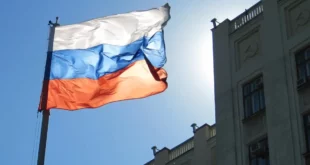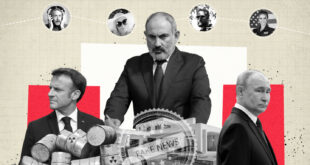The current situation in Chechnya is causing controversies and misunderstandings and, consequently, leading those who follow this region to draw incorrect conclusions.
First off, it must be noted that nothing extraordinary is happening there. The situation is the same as in other regions experiencing long ongoing conflicts. In Grozny, the pro-Moscow politicians have tried to cast the current situation as an inter-Chechen conflict in which Moscow must play the role of an intermediary. Yet, this is going to be a difficult spin, as is evident from the century-and-a-half history of relations between Chechnya and Russia, from the moment of its total occupation by the Russian imperial army in 1859, when the last Chechen community was conquered by a Russian army numbering 113,000-strong army against 98,000 Chechens. The only constant in Chechen-Russian relations is that the Russians never draw conclusions from the lessons of history.
Â
To begin, let us turn to those weak points that today motivate pro-Moscow forces in Chechnya. First, there is the dissension within the so-called team of pro-Moscow protégés. A good example is when Deputy Chechen Interior Minister Alambek Yasaev recently spoke out against the actions and methods of the republic’s leadership. In a public address, Yasaev spoke out against a group known as the Khosiyurtovs – residents of Ramzan Kadyrov’s native village, Khosi-Yurt (also known as Tsentoroi). Under Kadyrov’s patronage, the Khosiyurtovs have organized almost into a clan that instills fear in the rest of Chechnya, as anyone whom they do not like could be declared as a supporter of separatism and therefore dealt with by the most drastic measures (kavkaz.memo.ru, November 7). Yasaev’s speech, in which he clearly delineates between the authorities and opportunists who use the situation to try to get as much as possible from it, was made available on the Internet. The video of the speech effectively documents Yasaev calling for resistance before large numbers of his supporters, many of whom can be seen in the footage wearing police and military uniform. The audience numbered more than one hundred. It is evident from the speech that he had announced it in advance. The audience gathered in the village of Novogrozny, a settlement that is considered an area controlled by Ramzan Kadyrov, yet the speech was practically a declaration of war on Kadyrov’s clan [1].
Â
A response was not long in coming: apparently, on Kadyrovs’ orders, the Chechen leader’s inner circle tried to arrest Yasaev, and according to sources, the head of Kadyrov’s personal bodyguard unit was wounded in an ensuing shootout.
Â
There was previous speculation about tensions inside Kadyrov’s camp this past summer, when people, one after another, left Kadyrov’s structures for the mountains to join the rebels. Before that, there was the murder of Movladi Baisarov, commander of the Gorets special forces unit, in the center Moscow on November 18, 2006 (Newsru.com, November 18, 2006).
Â
The second factor is the instability created by the fact that the power of pro-Moscow officials in Grozny is derived completely from Vladimir Putin and his personal team (mainly from Vladislav Surkov, the deputy chief of staff of the presidential administration). This means that Putin’s departure from power or the removal of several officials from the presidential administration would significantly influence the fate of the Moscow-appointed officials in Grozny. That is why Ramzan Kadyrov never hides that he is personally loyal to Putin (Moscovskya Pravda, April 26).
Â
The third factor is the economy, wherein there are tangible changes in the republic. The rebuilding of destroyed enterprises and households have occurred because of increasing demands from the population, who until recently were content with cosmetic improvements to housing in Grozny and the construction of new roads. These demands, however, have already evolved into a demand for improved overall welfare, something that, after the grandiose reconstruction of homes and roads, cannot yet be achieved. The lack of wages and the participation of the whole population in construction cannot continue for long. Moscow and Grozny officials, however, are still unable to think long-term and this is creating a general discontent with the authorities in Moscow. The federal and pro-Moscow Chechen authorities will not be able to exploit the theme of reconstruction for much longer.
Â
The fourth factor is that the balance within Chechen society itself has been disrupted due to the noticeable preference given to the Sufi religious brotherhood of Kunta-Hadji, which has upset all the other Sufi brotherhoods, including those in Kadyrov’s clan and the followers of Naqshbandi tarikat (brotherhood). Although reconstruction and the upkeep of the graves of Chechen sheiks may be a correct step on the part of Kadyrov, even here there are instances of competition that must be taken into consideration. There is also the noticeable visibility of one teip (clan), the Benoi teip, which elicits a negative attitude towards all representatives of the ruling elite.
Â
The fifth factor is on the strategic level: Moscow has deprived itself of any opposition on which it could rely in the event of Ramzan Kadyrov’s departure from the political arena. Moscow allowed its protégé to deal with anyone whom he considered a possible opponent of his role in Chechnya. Today, such people as Beslan Gantamirov, Malik Saidulaev, Mahommed Kakiev and others have practically been reduced to figurines; their role is insignificant and nothing portends their revival, with the exception of the Yamadaev brothers, who have managed to retain some influence thanks to their high-level and powerful patrons from Defense Ministry and the GRU [Russian Military Intelligence].
Â
Finally, the sixth factor is Kadyrov’s personality cult, which is actively progressing in all of its manifestations-statues, songs, hymns, horse races and so on. Chechen society, which historically has been without classes, homogeneous and has also reacted negatively to any strengthening of the role and authority of any one of its members, cannot give any guarantees that such a phenomenon will be long lasting. The only thing that is clear is that it will continue as along as the army and Putin are behind Kadyrov, and Chechens will be forced to pretend that they accept it and agree to it. This, however, is only the tip of the iceberg: at the base is the total hostility towards this phenomenon in Chechen society.
Â
Mairbek Vatchagaev
Source: The Jamestown Foundation
 Eurasia Press & News
Eurasia Press & News



